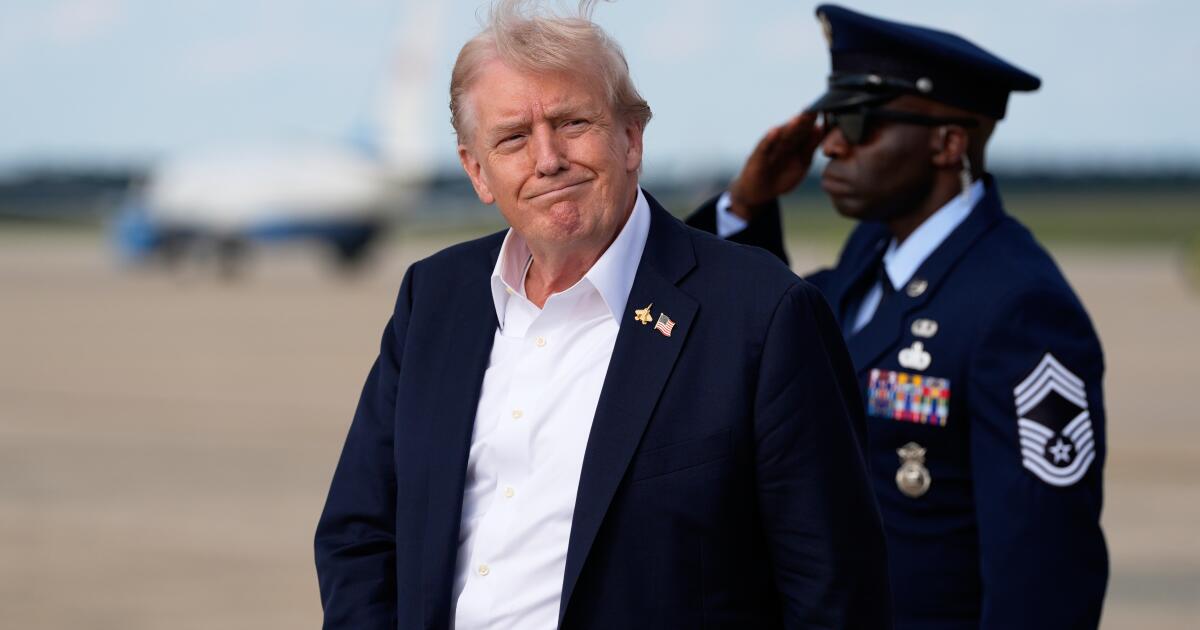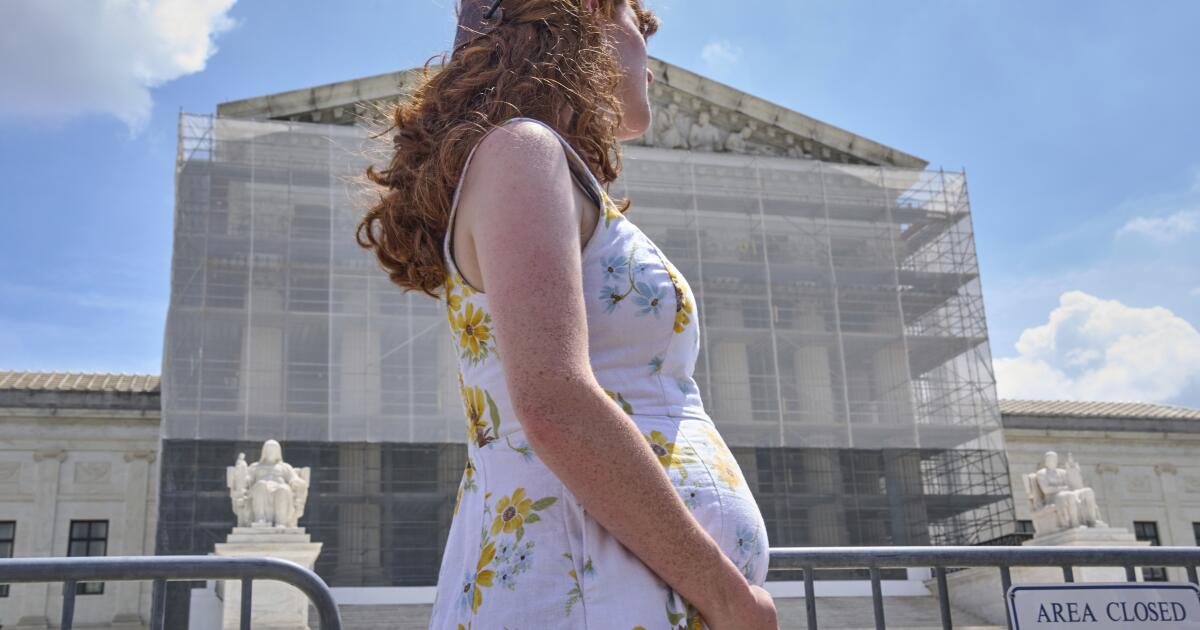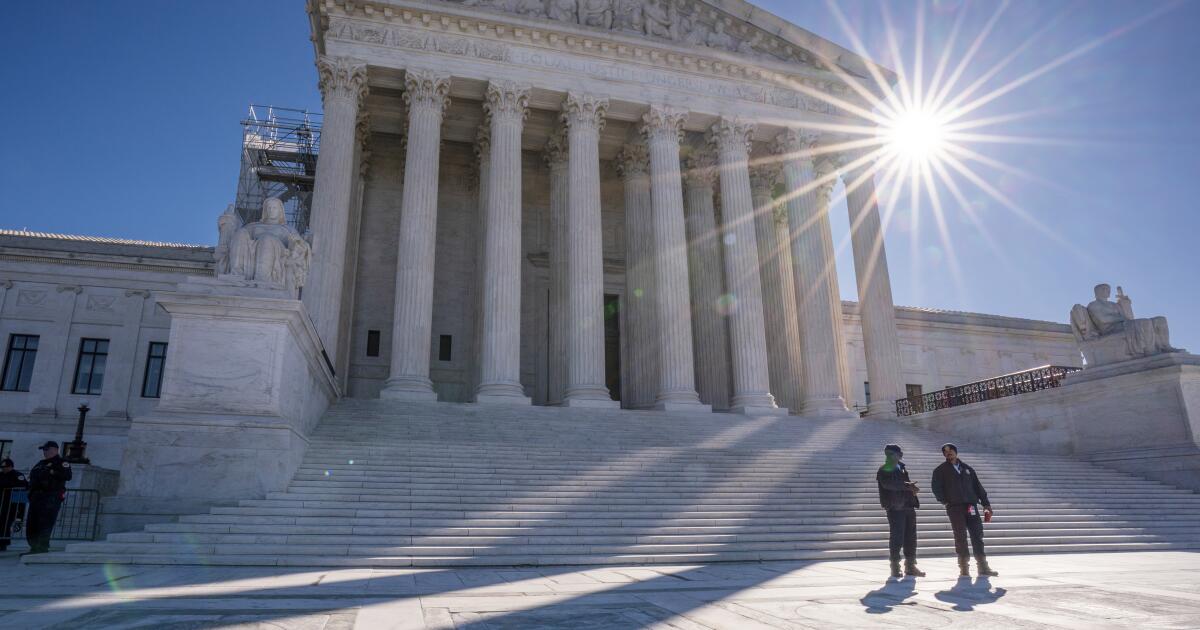Trump asks Supreme Court to uphold restrictions he wants to impose on birthright citizenship
WASHINGTON — The Trump administration is asking the Supreme Court to uphold President Trump’s birthright citizenship order declaring that children born to parents who are in the United States illegally or temporarily are not American citizens.
The appeal, shared with the Associated Press on Saturday, sets in motion a process at the high court that could lead to a definitive ruling from the justices on whether the citizenship restrictions are constitutional.
Lower-court judges have blocked them from taking effect anywhere. The Republican administration is not asking the court to let the restrictions take effect before it rules.
The Justice Department’s petition has been shared with lawyers for parties challenging the order, but is not yet docketed at the Supreme Court.
Any decision on whether to take up the case probably is months away and arguments probably would not take place until the late winter or early spring.
“The lower court’s decisions invalidated a policy of prime importance to the president and his administration in a manner that undermines our border security,” Solicitor Gen. D. John Sauer wrote. “Those decisions confer, without lawful justification, the privilege of American citizenship on hundreds of thousands of unqualified people.”
Cody Wofsy, an American Civil Liberties Union lawyer who represents children who would be affected by Trump’s restrictions, said the administration’s plan is plainly unconstitutional.
“This executive order is illegal, full stop, and no amount of maneuvering from the administration is going to change that. We will continue to ensure that no baby’s citizenship is ever stripped away by this cruel and senseless order,” Wofsy said in an email.
Trump signed an executive order on the first day of his second term in the White House that would upend more than 125 years of understanding that the Constitution’s 14th Amendment confers citizenship on everyone born on American soil, with narrow exceptions for the children of foreign diplomats and those born to a foreign occupying force.
In a series of decisions, lower courts have struck down the executive order as unconstitutional, or likely so, even after a Supreme Court ruling in late June that limited judges’ use of nationwide injunctions.
While the Supreme Court curbed the use of nationwide injunctions, it did not rule out other court orders that could have nationwide effects, including in class-action lawsuits and those brought by states. The justices did not decide at that time whether the underlying citizenship order is constitutional.
But every lower court that has looked at the issue has concluded that Trump’s order violates or probably violates the 14th Amendment, which was intended to ensure that Black people, including formerly enslaved people, had citizenship.
The administration is appealing two cases.
The U.S. Court of Appeals for the 9th Circuit in San Francisco ruled in July that a group of states that sued over the order needed a nationwide injunction to prevent the problems that would be caused by birthright citizenship being in effect in some states and not others.
Also in July, a federal judge in New Hampshire blocked the citizenship order in a class-action lawsuit including all children who would be affected.
Birthright citizenship automatically makes anyone born in the United States an American citizen, including children born to mothers who are in the country illegally, under long-standing rules. The right was enshrined soon after the Civil War in the first sentence of the 14th Amendment.
The administration has asserted that children of noncitizens are not “subject to the jurisdiction” of the United States and therefore not entitled to citizenship.
Sherman and Whitehurst write for the Associated Press.


